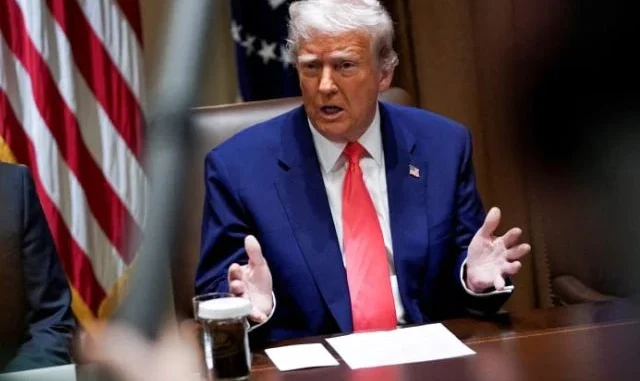
U.S. President Donald Trump has proposed a sweeping $163 billion reduction in the federal budget for the next fiscal year, targeting significant cuts to education, housing, and non-defense discretionary programs. The proposal, announced Friday, emphasizes increased funding for defense and border security, aligning with Trump’s longstanding policy priorities.
According to the White House Office of Management and Budget (OMB), homeland security spending would surge by nearly 65% compared to 2025 levels, while non-defense discretionary spending would be slashed by 23%, reaching its lowest point since 2017. Among the biggest cuts are a $2.49 billion reduction to the Internal Revenue Service and almost a 50% reduction in funding for the Department of Housing and Urban Development.
Trump’s budget also targets the Department of Education, proposing a 15% overall cut while maintaining support for low-income student programs. NASA’s moon mission and the State Department, which would absorb the U.S. Agency for International Development, are also facing significant reductions.
The administration argues the budget fulfills Trump’s campaign promises by reducing federal bureaucracy and prioritizing national security. It includes an additional $500 million for border security and nearly $766 million for border technology upgrades and deportation initiatives. The plan also maintains funding for 22,000 border patrol agents and proposes hiring more Customs and Border Protection officers.
However, the proposal has drawn sharp criticism from Democrats and skepticism from some Republicans. Senate Appropriations Chair Susan Collins expressed “serious objections,” particularly over cuts to low-income assistance programs and perceived underfunding of defense relative to inflation. Senate Democrat Chuck Schumer called the proposal “an all-out assault on hardworking Americans,” accusing Trump of sacrificing vital programs to fund tax breaks for the wealthy.
The budget, which acts as a framework for Republican lawmakers crafting upcoming spending bills, coincides with Trump’s push to extend the 2017 tax cuts — a move analysts say could add up to $5 trillion to the national debt, which already exceeds $36 trillion.
Despite internal party disagreements, Trump’s influence over congressional Republicans could help advance much of the proposal. The GOP aims to finalize the tax cut legislation by July 4, while also navigating economic challenges fueled by trade disruptions and inflation.
The White House confirmed it is working on a separate rescission package to formally cancel previously approved federal funds, as requested by Republican lawmakers.
NEWS DESK
PRESS UPDATE
